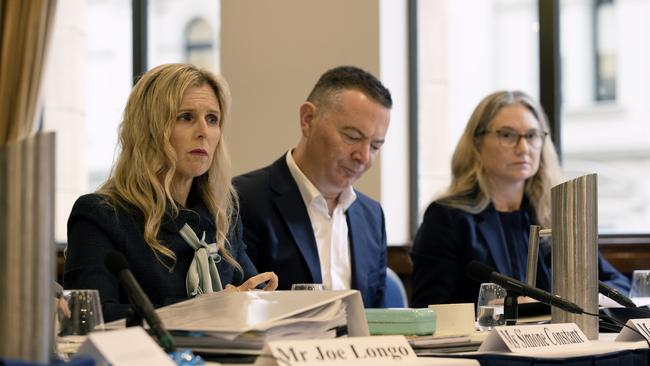ASIC puts super funds on notice over private asset transparency
The corporate regulator is warning of consequences for retirement giants that fail to disclose blow-ups in their unlisted and private assets, amid calls for more transparency around valuations.

The corporate regulator is warning of consequences for retirement giants that fail to disclose blow-ups in their unlisted and private assets, amid concerns more transparency around valuations was needed.
The Australian Securities & Investments Commission is running the ruler over the country’s superannuation giants amid scrutiny of the sector’s handling of communication with members.
The regulator said it was increasingly concerned about the handling of unlisted assets that represent a larger slice of the national savings.
ASIC commissioner Simone Constant said super funds had to disclose to investors where their funds were invested and provide greater transparency when investments went wrong.
Ms Constant, who joined ASIC in November last year, said the regulator had been “very public” in calling for greater disclosures from the super giants around their operations and investments.
“Let customers see their operations and funds,” she said, as super funds look to plough further cash into unlisted assets and investments amid halcyon days for the private credit markets.
Australian Super has plugged more than $7bn into private credit funds as the retirement giant chases yield. The funds have also thrown cash at litigation funders seeking to take action against listed businesses. This is in addition to unlisted holdings in property and infrastructure assets, including Sydney and Melbourne airport which a number of super funds hold through investment manager IFM.
But these assets have not all proven winners, with AustralianSuper copping a monster $1.1bn hit on its investments in American online education provider Plurasight after investing in the business through both debt and equity.
Ms Constant said super funds had to “take accountability” for how money was invested and valued, describing it as “a case-by-case consideration in terms of disclosures”.
But Ms Constant said an absence of mark-to-market, measuring the fair value of unlisted assets, was not a “itself a problem” so long as market figures took responsibility for those investments.
Ms Constant said ASIC would be surveilling super funds around their private assets and information to members as part of an overall campaign in the sector.
“If super funds don’t step up and we see member service delivery failures, we will bring the full force of the law,” she said.

ASIC has taken aim at multiple super funds over their disclosures to members around ESG claims. This has led the regulator to investigate underlying assets in funds.
MSCI APAC equity solutions executive director Oleg Ruban, who recently visited Australia, meeting with several retirement giants, said the sector increasingly had to grapple with valuing private and unlisted assets. But he said unlike listed assets this could be complex, noting the data was “more limited”.
Mr Ruban said Australia’s retirement giants had been keen entrants into private markets, proving more eager than Japan or Norway, which both boast huge investment schemes.
More Coverage
Originally published as ASIC puts super funds on notice over private asset transparency





